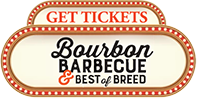Are you ready for a second dog?

Here’s what the pros say about adding another up to your pack!
If you’re a dog lover with one dog, chances are at some point you will ask yourself, “Does my puppy need a friend?” Besides, if one dog is great, wouldn’t two dogs double the awesome?
Yes. And no. And maybe.
There are lots of great reasons to bring a second dog into your home. And an equally number of great reasons not to.
The first big question to ask yourself is whether or not you have the time, money, energy and other resources to devote to a second dog. Two dogs means twice as much money for food, veterinarian bills, grooming, toys, treats and boarding. It also means — and this is a big one — twice as much dedicated one-on-one time to play with each pup.
Many people get a second dog in the hopes the dog will provide companionship and exercise for their first dog, thereby relieving them of these responsibilities. But while a second dog can definitely help in that regard, both dogs will still need both of those things from their human. That means twice as many games of fetch and hide-and-go-seek and two leashes to get tangled on walks.
That leads to the next big question: Does your dog even want a friend? Surprisingly, not all dogs like the company of other dogs. Just because they may seem bored doesn’t mean that another dog is the answer. In fact, it could make a dog feel threatened to have to share his space and valuable human-bonding time with another. This is especially true for dogs that are older and/or ill.
If you’re thinking about getting a second dog to help cure the behavior problems of the first dog, think again. “A second dog won’t miraculously make the first dog well-behaved,” says Tonya Wilhelm, dog training specialist and author of several dog training books including, “Please Stay-Help For A Dog With Separation Anxiety.” In fact, the new dog could simply pick up the bad behaviors — such as sofa chewing or counter surfing — of the old dog. Now you have double the trouble! Wilhelm recommends focusing on training and attention for your first dog before you consider adding another.
Finding the perfect second pet
 Finding a second dog is like matchmaking: Choose a pet that has the same interests has your current pooch. (Photo: Ksenia Raykova/Shutterstock)
Finding a second dog is like matchmaking: Choose a pet that has the same interests has your current pooch. (Photo: Ksenia Raykova/Shutterstock)
But let’s say that you do have the time, money and energy to focus on a second dog and you know that your first dog would love a buddy. How do you find a dog that will be a good fit for your family?
“Matchingmaking is key,” says Wilhelm. Think about your dog’s personality and the kind of dogs that she has enjoyed playing with. Is she a quiet dog who loves napping? Or an active pup who likes to get out and play? When you take her on walks does she shy away from big dogs while straining the leash to sniff the little guys? Look for a pooch with a personality that’s similar to that of your pup.
Age is another factor to consider here. “Young dogs tend to accept new pets more readily than crotchety set-in-their-ways canines,” says animal behavior consultant Amy Shojai, author of “ComPETability: Solving Behavior Problems in Your Multi-Dog Household.” If your dog is older, a bouncy puppy that is jumping, chewing and body-slamming may not be a good fit, notes Wilhelm.
Finally, both Wilhelm and Shojai agree that opposite sex is best when it comes to dog pairings. Just make sure that both dogs are neutered or you may have even more dog trouble than you bargained for! Depending upon the dogs’ personalities, male-male or female-female pairings can work, too. But there may be more issues with competition that you will need to keep an eye on until they figure out their place in the pack.
If possible, the best way to find out for sure how your dog will react to a second dog is to do a meet-and-greet, preferably on neutral territory. And even if that goes well, be prepared to help smooth the transition once the new dog comes home. “Even if there are no issues at the adoption area, there may be issues once the new pet comes to the home,” says Dr. Judy Morgan, a holistic veterinarian who is also the author of “What’s For Dinner Dexter? Cooking For Your Dog Using Chinese Medicine Theory.” “Some dogs will suddenly become protective of toys, food bowls, and owners when a new dog is introduced,” adds Morgan.
From the start, make sure that you have two dog bowls, two leashes, and plenty of dog food, treats and toys to go around. And don’t forget to give both dogs plenty of your time, but especially the dog who has been with you from the start. With the right planning, training and attention, bringing a second dog into your home really will double the awesome — bringing your pack many years of fun and friendship.
